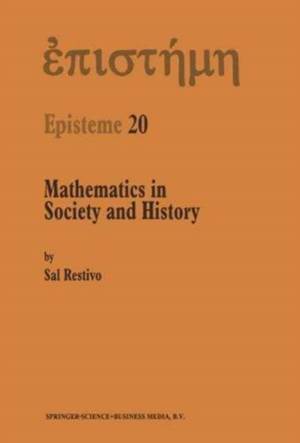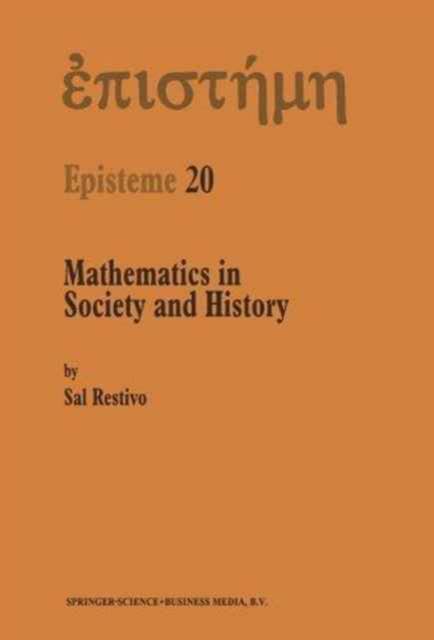
- Afhalen na 1 uur in een winkel met voorraad
- Gratis thuislevering in België vanaf € 30
- Ruim aanbod met 7 miljoen producten
- Afhalen na 1 uur in een winkel met voorraad
- Gratis thuislevering in België vanaf € 30
- Ruim aanbod met 7 miljoen producten
Zoeken
€ 167,95
+ 335 punten
Omschrijving
Following the leads of classical social theorists such as Emile Durkheim, Restivo develops the idea that mathematical concepts and ideas are collective representations, and that it is mathematical communities that create mathematics, not individual mathematicians.
Specificaties
Betrokkenen
- Auteur(s):
- Uitgeverij:
Inhoud
- Aantal bladzijden:
- 202
- Reeks:
Eigenschappen
- Productcode (EAN):
- 9781402000393
- Verschijningsdatum:
- 1/11/2001
- Uitvoering:
- Paperback
- Afmetingen:
- 152 mm x 223 mm
- Gewicht:
- 467 g

Alleen bij Standaard Boekhandel
+ 335 punten op je klantenkaart van Standaard Boekhandel
Beoordelingen
We publiceren alleen reviews die voldoen aan de voorwaarden voor reviews. Bekijk onze voorwaarden voor reviews.








